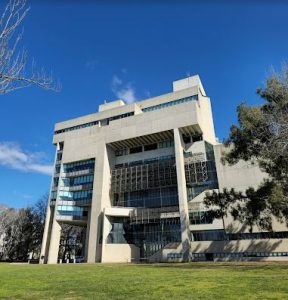High Court ruling on immigration detention welcomed
A recent High Court ruling on immigration detention that paves the way for an end to indefinite detention in Australia has been welcomed by refugee advocates.
The High Court has ruled that a Rohingya man from Myanmar has been unlawfully detained in immigration detention.
The ruling means that more than 90 people, mostly asylum seekers, will be released from detention.
 Under a previous High Court ruling, which was sparked by another man, Ali Ahmed Al-Kateb, it was legal for the government to detain people indefinitely, so long as they were removed from Australia as soon as reasonably practicable.
Under a previous High Court ruling, which was sparked by another man, Ali Ahmed Al-Kateb, it was legal for the government to detain people indefinitely, so long as they were removed from Australia as soon as reasonably practicable.
But for many of those awaiting deportation, that time was unspecified.
Recently, at the end of a hearing into the detention of the Rohingya man, the High Court set aside its earlier ruling and found that his detention had been illegal.
The man had been in immigration detention after serving time in jail for child sexual offences.
During the case, his lawyers told the court no other country could be found to take him, including members of the Five Eyes allies — the United Kingdom, New Zealand, Canada and the United States.
The UN’s refugee agency UNHCR welcomed the decision.
“While we must wait for the judgement to determine its full implications, the decision has the potential to begin to align Australia’s immigration detention practices with international law,” said UNHCR representative Adrian Edwards.
“UNHCR has expressed concerns over the last decades about arbitrary and indefinite detention in Australia. Only this week, we have visited detention centres and observed the dire effects that detention can have on refugees and stateless persons, some of whom have been detained in excess of 10 years.
“Regardless of whether someone has committed a crime in the past and for which they have served their sentence, the High Court has now made clear that immigration detention must not be punitive.
“UNHCR will continue to advocate for those under our mandate who remain in detention.
“We hope this is the first step in creating a system of detention in which people are only deprived of their liberty as a measure of last resort and when absolutely necessary,” Mr Edwards said.
The High Court was told there had been ministerial involvement, and government staff had been told “no stone should be left unturned” to find a place for the man to be settled.
The court also heard there were 92 people in a similar position to the man in the current case.
The court was told most could not be returned home for fear of persecution and nine were stateless.
Five out of the 92 were in an “intractable” position and could not be removed due to factors beyond anyone’s control, including the Rohingya man.
The court heard many of them were detained on character grounds, with a few on the grounds of national security.
Executive director of Refugee Legal David Manne said the decision was of profound consequence.
“Detention can no longer be forever,” he said.
“Right now there are people who must be released in accordance with this ruling,” he said.
In a statement, Immigration Minister Andrew Giles confirmed other “impacted individuals” would be released, and any visas granted would be subject to “appropriate conditions”.
“We are considering the implications of the judgement carefully and will continue to work with authorities to ensure community safety is upheld,” Mr Giles said.












